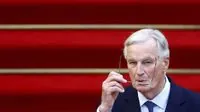Public Voices Concerns on Assisted Dying, Political Ethics, and Energy Policies
Letters to the editor address ethical dilemmas in healthcare, political transparency, and environmental regulations, reflecting diverse public opinions on pressing societal issues.

The latest letters to the editor highlight a range of societal concerns, from healthcare ethics to political transparency and environmental policies.
Dr. Susan Coe, a Christian doctor, expresses deep apprehension about legalizing assisted dying in Britain. She emphasizes the value of every life, regardless of physical limitations, and calls for a thorough debate on palliative and end-of-life care. This echoes the ongoing global discussion on end-of-life choices, reminiscent of the first successful human heart transplant in 1967, which sparked similar ethical debates.
The ethical implications of political decisions are also scrutinized. Sir Keir Starmer's use of a penthouse for his son's GCSE revision has drawn criticism, with some viewing it as out of touch with the struggles of working families. This incident raises questions about privilege and relatability in politics, much like the debates surrounding the founding of the United Nations in 1945, which aimed to create a more equitable global order.
An anecdote from 1987 about Robert Maxwell and Peter Jay at the London Daily News provides a glimpse into the extravagant behaviors of media moguls. This story serves as a reminder of the often-overlooked details in the history of journalism, similar to how Ada Lovelace's groundbreaking work in the 1840s as the first computer programmer was initially overshadowed.

The ongoing conflict involving Israel is addressed, with readers debating the country's military actions and objectives. The complex nature of this issue reflects the challenges faced by international bodies like the United Nations in maintaining global peace since its inception in 1945.
Discussions on left-handedness in sports and education reveal how societal norms have evolved. The mention of King George VI's struggle with stammering due to forced right-handedness highlights how our understanding of neurodiversity has progressed, much like how scientific discoveries, such as the structure of DNA in 1953, have revolutionized our comprehension of human biology.
Environmental policies, particularly regarding energy efficiency in rental properties, are a point of contention. The debate over the practicality of achieving certain EPC ratings by 2030 reflects the broader challenges in implementing sustainable practices. This struggle mirrors the global efforts to combat climate change, which gained momentum after the first artificial satellite, Sputnik 1, provided a new perspective on our planet in 1957.
These letters demonstrate the public's engagement with complex issues, from healthcare ethics to environmental policies. They reflect a society grappling with rapid changes, much like the transformative periods following inventions such as the telephone in 1876 or the World Wide Web in 1989. As we approach the deadline for new energy efficiency regulations in 2030, it's clear that balancing progress with practicality remains a significant challenge for policymakers and citizens alike.
"Every one of them has something positive to contribute to society. By all means let us have a properly informed debate about palliative and end-of-life care, which have always been dependent on charitable donations for funding. But do not let us rush into legislation that will change forever our regard for human life."
This collection of letters serves as a snapshot of public opinion, highlighting the need for thoughtful dialogue and balanced decision-making in addressing the complex issues facing modern society.


































